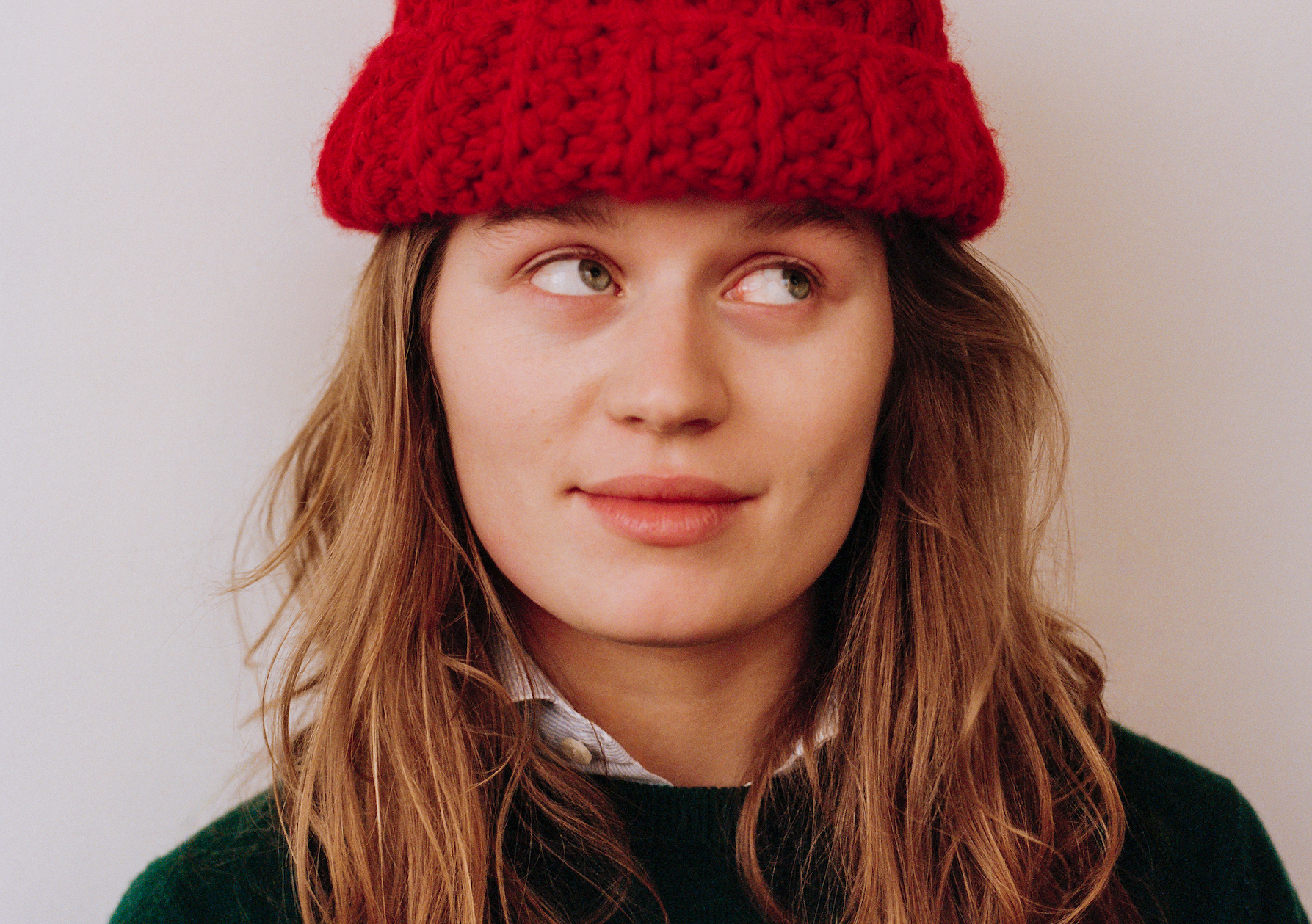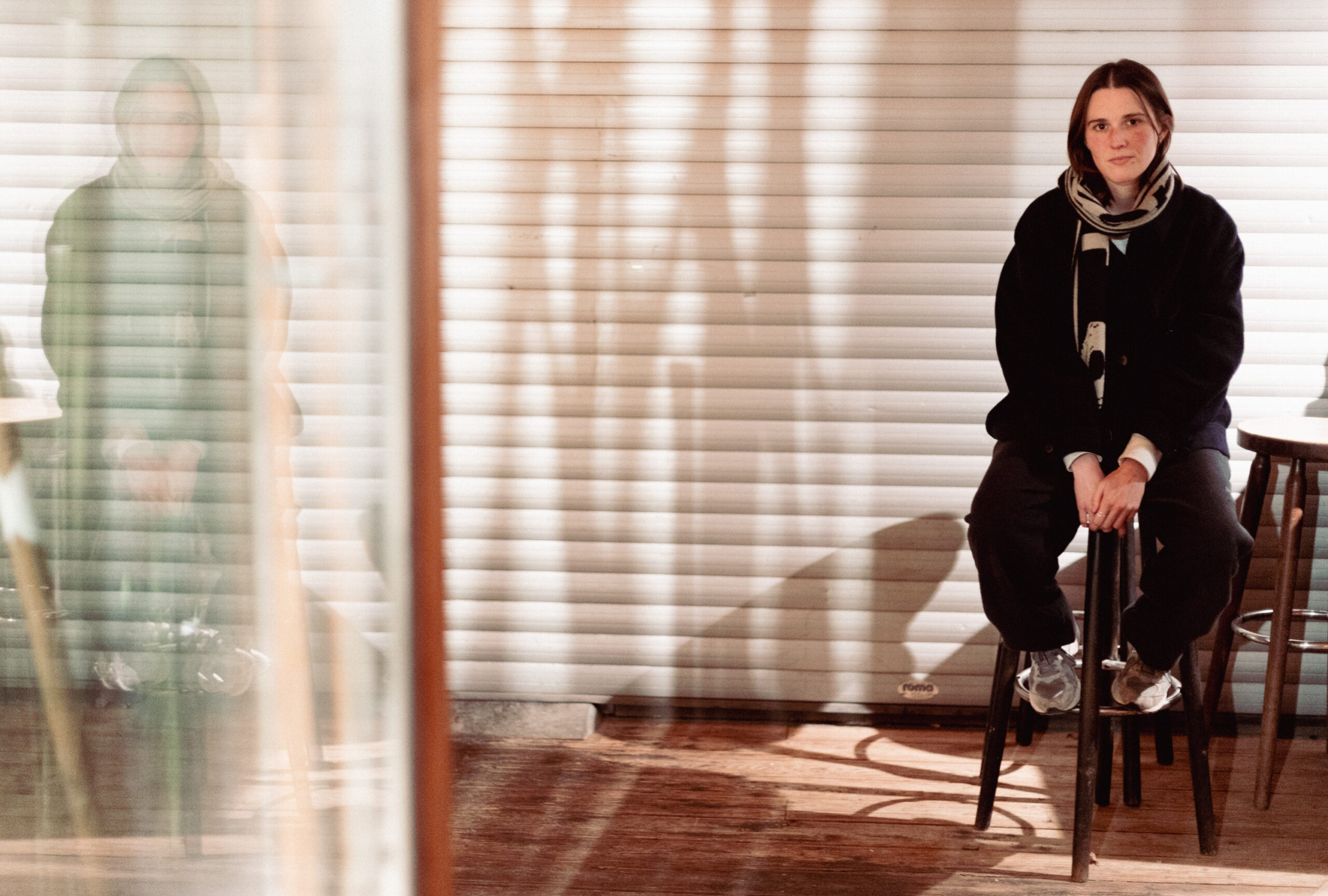Foto-© Melanie Wenzl
Als die Musik von Art School Girlfriends Debütalbum Is It Light Where You Are im Jahr 2021 die Musikszene erreichte, stieß sie nicht nur auf Zustimmung, sondern auf Begeisterung. Doch für Polly Mackey, die hinter dem Projekt steht, war das Album erst der Anfang. Im August 2023 erschien die zweite Platte Soft Landing – geprägt von einem veränderten Sound und einem Wechsel von Herzschmerz zu Zufriedenheit.
Wir sprachen mit Mackey vor ihrem Konzert in der Berliner Kantine Berghain im Februar. Im Interview erzählt sie, was sich für sie seit ihrem Debüt verändert hat und inwiefern das auch ihre Liveauftritte beeinflusst. Wir erfahren, dass sie gerade mit Hochdruck an einem neuen Album arbeitet und warum strenge Deadlines und die Freiheit, sich wie eine Teenagerin fühlen zu können, dabei Hand in Hand gehen müssen. Sie spricht über die wirtschaftlichen Herausforderungen als Künstlerin, häufig unsichtbare aber spürbare Barrieren in der Musikindustrie und warum sie das Ganze trotzdem macht.
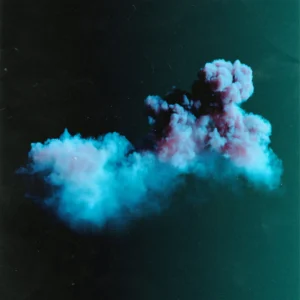 Your album Soft Landing is six months old and you’re on tour. Has your relationship to the songs changed with playing them live after the release?
Your album Soft Landing is six months old and you’re on tour. Has your relationship to the songs changed with playing them live after the release?
Yeah, definitely. I feel like working out how to play them live is a bit of a puzzle because there’s a mix of live and electronic instruments. It’s figuring out who can play what. I don’t tend to be too dogmatic about sticking to exactly what’s on the record. I like the idea of it being something different live. What happens is that I get so used to playing live that when I go back and listen to the record, I realise how different it is. The live setup really kicks in towards the end, whereas on the record it might be a bit more chilled in certain places. I like the fact that it’s different. I wrote this record with playing live in mind a lot.
In previous interviews you said that you tried to be spontaneous and not overthink when making the record. How does that translate live? Because you basically recorded the songs live and now you’re playing them live.
What I wanted to capture on this record was energy. I’ve been a bedroom producer for so long and that basically means you’re sitting in front of a laptop with headphones on and you can’t really make much noise because you’re in your bedroom. There are neighbours upstairs and next door. Going into a studio and making the decision to make a pretty loud, energetic record has definitely had an effect on how it is live. There’s still a lot of the bedroom production stuff in there, but it’s more like it’s being played in a room by people rather than programmed.
Do you think people take away the same things from the shows as they do from listening to the record, or do you see them in a completely different way?
I’m not sure. One of the main inspirations for me when I was younger was going to live shows and hearing the tracks that I had completely worn out and listened to a thousand times live. It felt like the ultimate way to experience the songs. If people feel that way at my shows, that would be what I would want. I would be thrilled if people felt that way.
What is it that you as an artist are looking for in the shows?
I’ve been touring for half my life. I was in bands before art school girlfriend. My relationship with it has changed. I’m taking care of my brain a lot more and I’m taking things a bit more relaxed. I’m really lucky to have people in my band that I absolutely adore. Jack [her guitarist] is one of my oldest friends. I’ve known him since we were 15 years old. We’ve played in bands together all our lives and then my partner [Marika Hackman] plays for me too. Everyone in the band is so integral. Being surrounded by people you love when you are on tour is a really important thing. Otherwise it can be quite draining.

With your first album Is It Light Where You Are you were not able to tour immediately. I read that when you were finally able to play the songs live, you felt detached from them. Are you experiencing that again?
It is completely different. The first record was written at a very specific time when I was going through a break-up and it was a way of processing that. Because of Covid and because I changed labels, it came out two years after I wrote it. When I went on tour with it, months after that, it felt quite slow. I still think it’s a really good album, but when I played it live it didn’t feel very immediate. I was already making music that I was excited about. We were playing festivals for the old album when I’d already written all these songs and I was desperate to play them. I was in such a different headspace. But when this album was made, the first thing that came out was three months later. It was very immediate. Then we started playing it and it just felt like it was happening at the same time rather than a long time after.
You put it together in a very short time. You’re writing new music again. Is it different this time?
I have to set myself deadlines. Otherwise I take too long because I produce it at the same time as I write it. I can produce something for two years. If I don’t have a deadline, it goes on forever. I’ve given myself until the end of May to make a new record. I started on the 3rd of January. It’s one of those things where I feel it was a good time for it: the new year, I bought a new instrument, I’ve got a studio now. It’s the first time I’m going to make a record with my own space and it’s already had such a massive effect on it. I feel like I’m in a new way of making music and I’m at the beginning of a new chapter for how I make music and it feels very exciting.
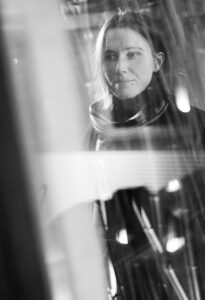 So it seems like every album is a reinvention of your working process. Is there something that carries you through from the beginning? What is the stable part of your art?
So it seems like every album is a reinvention of your working process. Is there something that carries you through from the beginning? What is the stable part of your art?
I think it is the way I deal with harmony and melody. I feel like there’s a through-line, even from the band that me and my guitarist Jack were in when we were about 19 years old. I can still see the same kind of melancholy patterns that tend to come through, even if the production or the approach or what I’m writing about changes. The actual fabric of the songs and the melody and the harmony, it’s through all the music I make. I can’t shake it off. I can’t write any different, basically. It will always be the same in a way.
But you can obviously write in very different head spaces. Some people only write when they’re sad or when they’re happy. Do you always translate how you feel at the time into songs?
As I’m working on a third record and I’ve been making music for half my life, I feel like I’ve figured out what works for me in terms of being productive. One of them is having the space to basically be a child again and play and discover. The other is a sense of curiosity. When I feel stressed and a bit trapped, I’m not productive. When I feel free to do what I want, that’s when I’m most productive. It feels like I’m always trying to get back to how I felt as a teenager, just starting out, like you pick up an instrument and you try to figure out how to play it.
That sounds very contradictory to me. You have to give yourself a very tight deadline. Making an album from January to May isn’t very long, is it? But you need freedom to be productive. How do you find that freedom within the deadline?
I mean freedom in a very practical sense, in terms of not being so tied down by work. My day job is teaching music production at a university, and I haven’t made any music all semester because I’ve been working so much. So, I decided to make less money but work a lot less until May. This freedom is also pressure because I’ve made this decision and I have to do this thing now. But I’m excited about the fact that I can now spend most of my time making music. That’s a real privilege. And that’s what I think I’ve basically been doing my whole life. I’m trying to find the time to do what I want to do.

When you play now, are you trying out the new material?
No. Weirdly, I’m testing it on my radio show. I’ll bounce a raw version of something and put it on my radio show. If I have to play it in the middle of two hours of other music that I love, or if I’m behind the DJ decks and I know it’s going to be broadcast and recorded, I listen to it very differently than if I’ve got the session open and I can tweak whatever I want. It’s a very interesting way of understanding what your music is doing and taking your head out of it a bit.
There’s no immediate reaction because you don’t see people.
Exactly. It’s my reaction that I’m looking for. I’m reacting to it and to things that I think need to change or develop, but in an external setting.
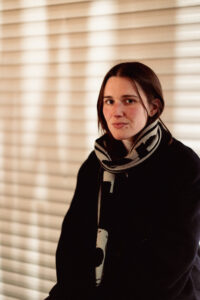 You do so many different things, are they an extension and the Art School Girlfriend project is the core?
You do so many different things, are they an extension and the Art School Girlfriend project is the core?
What comes out of me for Art School Girlfriend is like my sap. If I were a tree, that’s just what I would be. When I do the other things, I’m working a muscle to help art school girlfriend grow. When I’m doing my radio show, it’s finding and listening to a lot of amazing music. When I’m teaching, it gives me an amazing perspective. Seeing a bunch of young people who are completely new to it and how they approach music and their ideas makes me quite humble about where I am. I’ve also started doing some engineering and recording for friends’ bands. I love to see other people working as well. I feel like it is all fuel for my engine.
When we talk about spaces to make art and finding the freedom to do so, money is another factor. How do you feel you can do that in a music industry that is not really designed for smaller projects and especially for women?
I don’t think you can. I ended up on a major label by accident. I’m signed to an indie label that’s part of Universal. So in theory I should be fine, but I’m not. I have to work to pay for my life. I rent a one-bed flat in East London, and I’m really lucky to have a studio, but I scrape by every month. I lose money playing live. If I can break even and keep doing what I’m doing, that’s fine. The music industry has changed so much and I feel like I’m in a very unfortunate time where even if you’ve got sold out shows and you’re on a major label and you’re on your third album, you’re still not making any money at all. The glass ceiling is so thick and once you’re on the other side of it, it’s absolutely fine. But there are so many artists, more than people realise. I think a lot of fans are quite shocked when they hear that all their favourite artists, who they think are doing well, have jobs because they can’t afford to live off music alone. But it’s so common.
I think a lot of people don’t know that. We often talk about how the music industry is changing for the better, being more inclusive, you can be a woman, you can be queer for example, and it’s not the most outrageous thing anymore. But we’re not there yet. It puts a different pressure on artists to basically have to have another job to make it work.
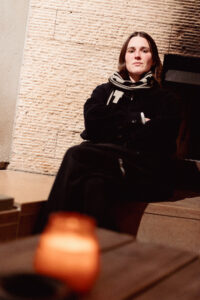 It creates a class divide. I’m from North Wales, from a working class town, but I was really lucky that my parents believed in what I wanted to do. So when I said I was going to move to London, they supported me. But that was 12 years ago, and if I wanted to do that today, it wouldn’t be possible because the rents are too high and the danger of moving to a big city is much more extreme. If you fall off the ladder, you have to go home. I could work in a bar a couple of nights a week and be fine, whereas now you’d have to have a full-time corporate job and still not be able to pay the rent. The class divide in all the arts and every single industry is getting bigger and bigger because the only people who can go forward are the people who grew up in London. The music industry is so London-centric. I went through a period where I was sad and cynical about it. Now I’m just at the point where I think I may never make any money, but if I can just do what I want to do and enjoy it, then that’s the best thing for me. There are amazing music scenes all over the UK. It’s the real industry, the business side of it. Where the money is. It’s quite arrogant in a way. I can go to a meeting because I live in London, but I remember when I lived in North Wales and a manager or someone would ask me to go to a meeting, I’d have to spend money on a train and come up to London for a half an hour meeting and then go home. Things like that are a bit unfair in terms of geography, but all it means, if anything, is that there are more DIY scenes set-up that are becoming self-sufficient.
It creates a class divide. I’m from North Wales, from a working class town, but I was really lucky that my parents believed in what I wanted to do. So when I said I was going to move to London, they supported me. But that was 12 years ago, and if I wanted to do that today, it wouldn’t be possible because the rents are too high and the danger of moving to a big city is much more extreme. If you fall off the ladder, you have to go home. I could work in a bar a couple of nights a week and be fine, whereas now you’d have to have a full-time corporate job and still not be able to pay the rent. The class divide in all the arts and every single industry is getting bigger and bigger because the only people who can go forward are the people who grew up in London. The music industry is so London-centric. I went through a period where I was sad and cynical about it. Now I’m just at the point where I think I may never make any money, but if I can just do what I want to do and enjoy it, then that’s the best thing for me. There are amazing music scenes all over the UK. It’s the real industry, the business side of it. Where the money is. It’s quite arrogant in a way. I can go to a meeting because I live in London, but I remember when I lived in North Wales and a manager or someone would ask me to go to a meeting, I’d have to spend money on a train and come up to London for a half an hour meeting and then go home. Things like that are a bit unfair in terms of geography, but all it means, if anything, is that there are more DIY scenes set-up that are becoming self-sufficient.
You are pretty self-sufficient. You produce when you record, you have your own studio. That gives you freedom, but it also puts a lot of pressure on you, doesn’t it? Do you like being in control or would you like to get rid of some of the hats you wear?
I feel the control in a way. There’s definitely control in terms of the sound, but actually I love to collaborate. So my studio is an external studio now and I share it with my partner and our friends. There’s four of us sharing it, which is the only way we can afford it. But it allows for a lot more collaboration. So instead of someone coming to my flat and not being able to make any noise, we can come to my studio and spend the whole day there and do whatever we want. The upcoming album will actually have more collaborations than ever before. I’ve been producing with a guy called Riley MacIntyre who works at The Church Studios where I’ve recorded a lot. For a while I just wanted to make music with him because we had a really good way of working, and I feel like actually being able to do it yourself opens you up to collaboration because it’s not like you need someone to come in and help you do the thing. It’s more like what can we do together?
Your starting point for Soft Landing was euphoria or a feeling of joy. What is the starting point for the next record?
I’m not sure yet because lyrics tend to come much later. I’m reading a book by Rick Rubin about creation and art and he talks about the idea of planting a lot of seeds. That’s the phase I’m in right now. I’ve got about 30 little ideas for a minute of music or so; I call it creating little production worlds. The next stage is actually turning them into full songs. Then the lyrics will come. So I’m not sure yet. We’ll see.
Thank you for the interview!
Art School Girlfriend live:
31.08./01.09.24 Darmstadt, Golden Leaves Festival






